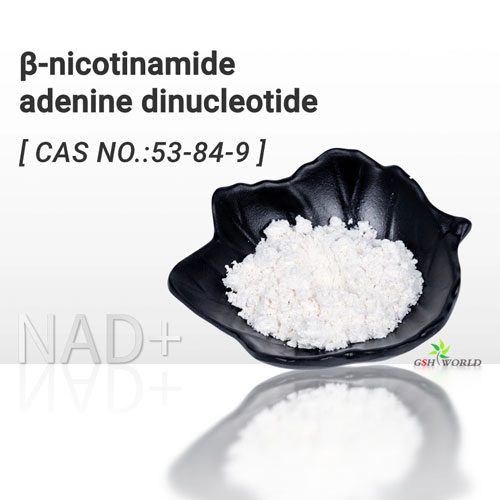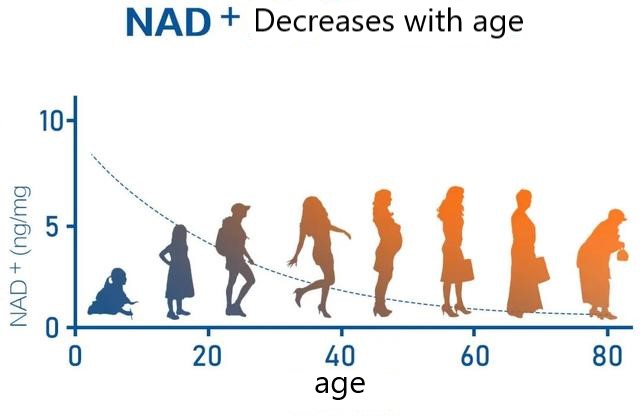As we all know, the main role of enzymes is to catalyze, there are about 20,000 kinds of enzymes in the human body, they dominate the metabolism of organisms, nutrition and energy conversion and many other catalytic processes. NAD+
Coenzymes bind loosely to enzyme proteins and act as carriers in enzymatic reactions, transferring electrons, protons or groups.
NAD+ is an essential coenzyme for life and cells and is involved in thousands of REDOX enzyme reactions in the human body.

For example, NAD+ is an important coenzyme in the tricarboxylic acid cycle, which promotes the metabolism of sugars, fats and amino acids, and participates in the synthesis of human energy.
NAD+ is also the only substrate for the Coenzyme I consuming enzyme (the only substrate for the DNA repair enzyme PARP, the only substrate for the long-lived protein Sirtuins, and the only substrate for the cyclic ADP ribose synthetase CD38/157).
Nowadays, thanks to the rapid progress of life science, with the continuous enrichment of basic research and clinical evidence, various aging intervention strategies have begun to enter the public eye and effectively improve people’s quality of life.
Clinical validation, as the only criterion to confirm the efficacy of β-nicotinamide adenine dinucleotide, lays the underlying logic and principle support for the association between NAD+ and cell metabolism, construction and repair.
1. Discovered and confirmed that NAD+ can regulate human lifespan
In 2016, scientists such as Johan Auwerx of the Faculty of Life Sciences at the Ecole Polytechnique Federale de Lausanne, Switzerland, revealed the mechanism of action of β-nicotinamide adenine dinucleotide and the longevity protein Sirtuin in the human body to extend human lifespan.
Later, scientists at the National Anti-Aging Research Center in the United States found that the human body’s supplement of NAD+ can ultimately extend human life and improve health through mitochondria and DNA.
Scientists at the University of Washington School of Medicine in the United States found that NAD+ extended the life span of laboratory mice by about 30%.
2. NASA uses NAD+ to protect astronauts from cosmic rays
In 2017, American geneticists found that supplementing NAD+ can regulate the disturbed biological clock of people with sleep disorders and restore it to a normal circadian rhythm.
That same year, NASA began using β-nicotinamide adenine dinucleotide to protect astronauts from genetic mutations and physical damage caused by cosmic rays.
Previous studies have shown that DNA damage to astronauts caused by high-energy particle radiation in space causes 5 percent of cell death and significant aging throughout the body, and almost 100 percent will develop cancer, and NAD+ expected to the key to solving this challenge.
3. It was found that the life span of mice could be extended by 30% by increasing the level of NAD+
In 2018, A joint study by David A. Sinclair, a tenured professor at Harvard Medical School in the United States, and the University of New South Wales found that human cells can reprogrammed by cells, and aging organs can also re-stimulated to gain new life, while a two-year mouse experiment proved that long-term supplementation of β-nicotinamide adenine dinucleotide can extend the life of mice by 30%.
As people age, the level of NAD+ in the human body continues to decline, every 20 years, will drop by 50%, to the age of 40 only 25% of childhood. By age 60, only one in eight left, and by age 80, it drops to an extremely low level, one in 16 of what it was in childhood.
As NAD+ plays an increasingly irreplaceable role in human material and energy metabolism, NAD+ is more and more closely associated with aging and longevity.
Taking NAD+ precursor supplements internally to improve the level of NAD+ in the body has become one of the more common maintenance methods for modern people.




